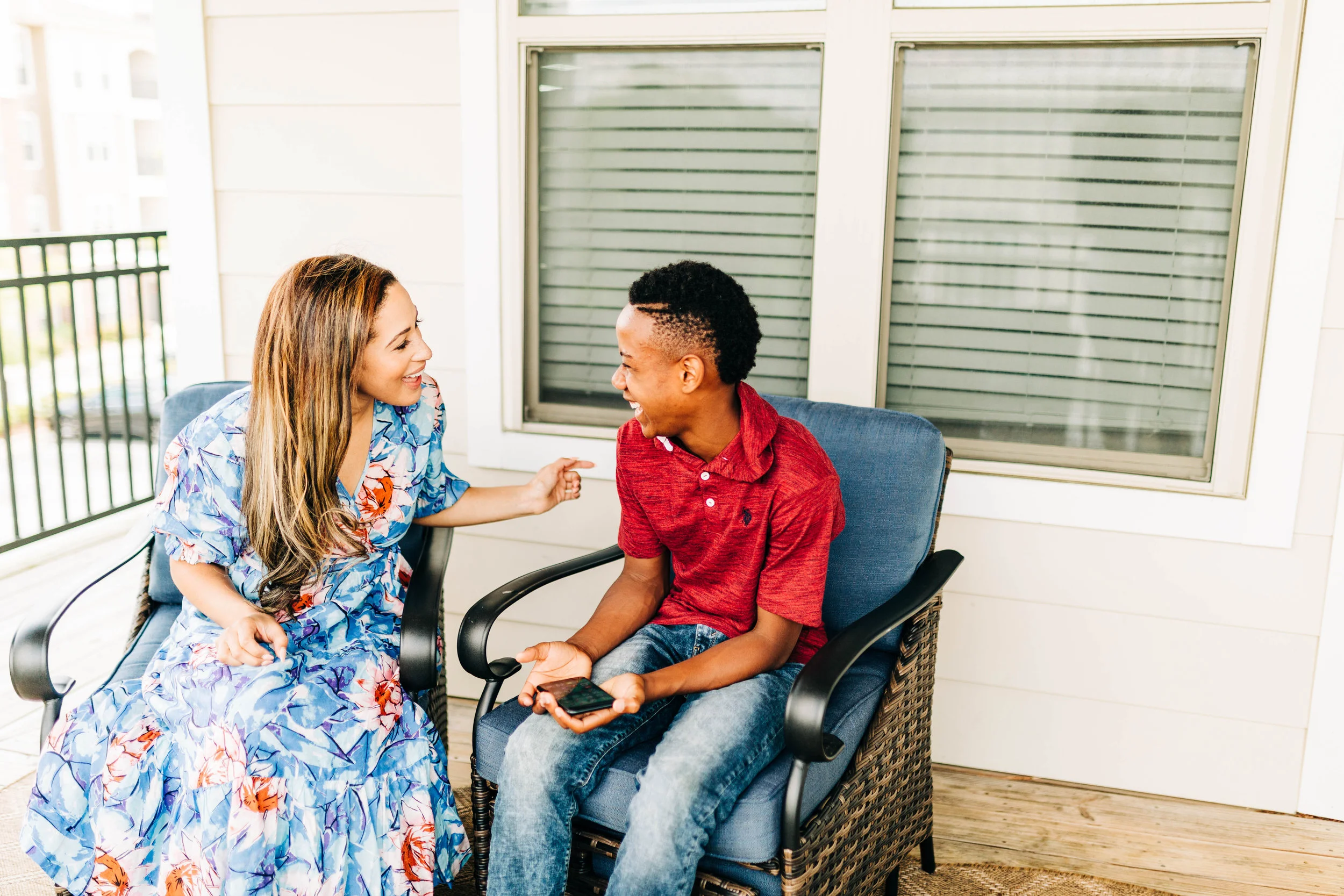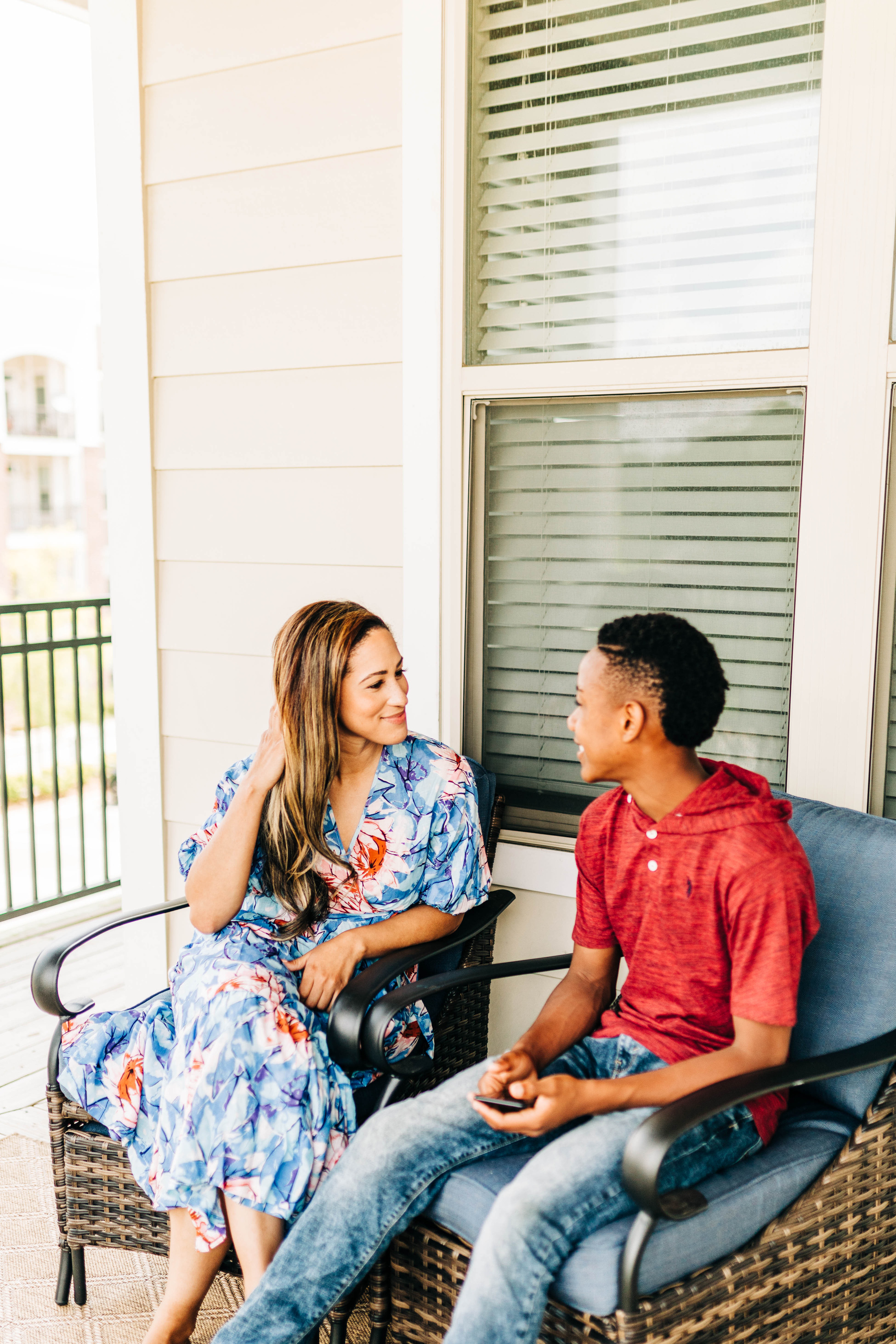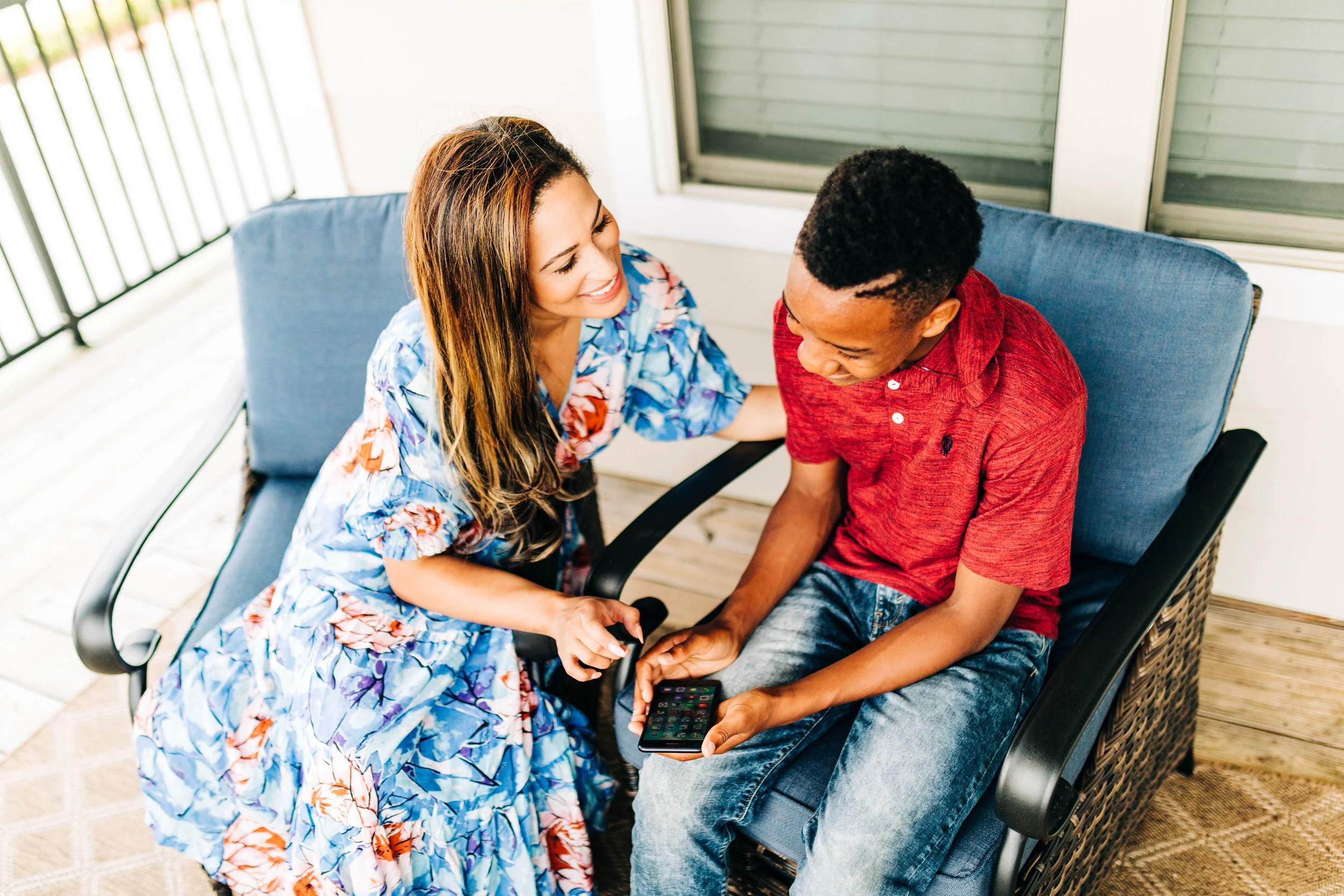Am I Ready to Give My Child a Smartphone? Seven Questions to Help You Decide
Motherhood in the tech age is NOT for the faint of heart! The question is no longer whether to give our kids smartphones – it’s when. And now that Jordan’s almost 13, this is topic numero uno at home. The Verizon Just Kids plan is a game changer in our family conversation, and these are some of the questions we’ve been asking ourselves and each other:
1. Why do my kids want a smartphone?
As frustrating as it is to hear “but all my friends have one,” that’s valid. I mean, why should kids be any different from adults? It’s human nature. That can’t be the deciding factor for us, but letting our kids know we hear them has started the conversation on a collaborative note. That’s really important – the last thing I want is for the phone to become the subject of constant battles. Articulating their reasons and advocating for themselves is an important life skill too, and this is a great way to foster it.
2. What are my actual concerns?
EVERYTHING. I get it. Phones represent independence and access, right? Not only does it feel like they’re growing up SO FAST – they understand things we don’t. (Fortnite, I’m looking at you.) But narrowing it down helps. Schoolwork and grades? Inappropriate content? People with bad intentions? Seeing my kiddo permanently hunched over with tendinitis in his scrolling thumb? Tackling each one separately feels less overwhelming. And one thing I love about the Verizon Just Kids plan is not having to worry about complicated programs to restrict content, use time, etc., since the device comes with plug-and-play controls. One big concern, checked off the list. Thank u, next.
3. What are the benefits for me as a parent?
Part of me is really excited for Jordan to get started. I mean, it’s hard to imagine how our parents survived sending us out to ride our bikes with a vague “be back before dark,” or off on a field trip to a crowded downtown museum, with no way to check in. So for me, knowing I can reach them will make it easier to let go as they get older. And I’m pretty sure texting that they’ve arrived is lower on the embarrassment scale than, say, calling when they get there. From a land line. OMG. Mortifying.
4. How can I model healthy tech use for my kids?
Can’t lie: this discussion has me a bit self-conscious about “the twitch” – you know, that constant impulse to reach for your phone (and keeping it within arm’s length at all times in the first place)? It’s a great reminder for me to moderate my own habits. And setting guidelines that keep us engaged as a family is definitely important. Sometimes, Lew and I need the reminder too! And I love the idea of showing the kids that putting the phone away is good for relationships. ALL relationships.
5. What rules work for our family?
The previous question became a perfect lead-in for this one. It’s soooo easy to go down the parenting blog rabbit hole - I promise, I’m not immune! “What are other parents doing? What do experts recommend?” These are great starting points, but ultimately, we know ourselves and our kids best, and what works for us may not be right for others. And that’s absolutely OK. The kids are definitely more receptive to this approach, too.
6. Am I comfortable being the bad guy when needed?
The thing about rules is that they don’t matter if we don’t enforce them. And I swear, kids can smell it when we Just Can’t Even. So we’re preparing ourselves to be super-consistent: The phone goes to its charging station at 8pm. I can ask them to hand it over for a “spot scroll” on a moment’s notice; dad can @ them any time (though social media use is an entirely separate conversation!). Whatever rules we land on, I really believe sticking with them is ultra-important when it comes to phones - even if it means we let other things slide.
7. What opportunities will a smartphone give my kids?
Education on subjects that interest them, from hobbies to activism. How-to’s on basic life skills (my friend’s son learned to clean his bathroom by watching YouTube videos and I am SO here for that). Locations, directions, logistics. Connections to their friends and support networks - so important for kids, as this world is more challenging for them, too! Practice at learning how to be good consumers of information - and at being good communicators, in all areas of life.




